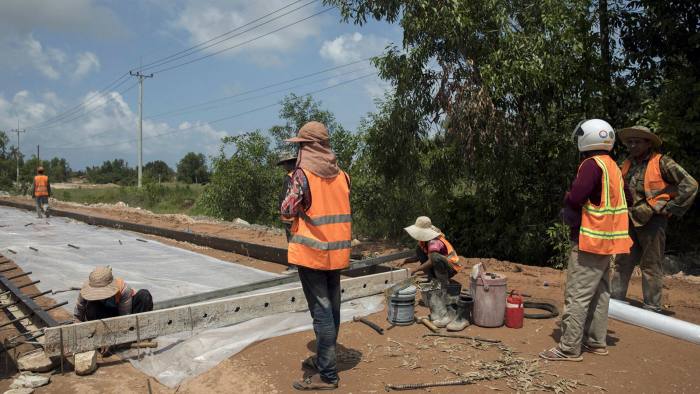
Agencies (2 December 2021) – The EU wants to mobilise up to €300bn of spending on infrastructure and other projects for a Global Gateway plan to respond to China’s influential Belt and Road Initiative.
The European Commission’s draft proposals suggest that the EU’s ambitions will rely heavily on leveraging private sector spending as well as public investment, while co-opting spending from EU member states. The €300bn, to be invested by 2027, would include resources from the EU, member states, European financial institutions and national development banks.
It would also “seek to mobilise private sector finance and expertise and support access to sustainable finance”, according to the report made public by EU. The commission will set out the plans on Wednesday. Western nations are seeking to bolster their involvement in projects in developing countries and counter the BRI, under which Beijing has extended its reach and influence globally.
The Global Gateway project is not explicitly pitched as an alternative to China’s projects, but the draft stresses it will provide a “values-based” option and an “ethical approach”. “By offering a positive choice for global infrastructure development, Global Gateway will invest in international stability and co-operation and demonstrate how democratic values offer certainty and fairness, sustainability for partners, and long-term benefits for people around the world,” the draft document says.
The BRI has become an important strategic tool for Beijing since its launch in 2013, as dozens of countries sign up to China-backed projects such as railways, bridges and ports. This and similar initiatives have raised concerns in European capitals that the EU is far behind when it comes to developing nation infrastructure. However, some BRI recipient countries have complained that the initiative’s debt terms are onerous and some projects have deficient environmental or building standards.
The EU programme would prioritise investment in digitalisation, health, climate, energy and transport as well as education and research. The draft says the EU plans to boost its budget spending on infrastructure outside the bloc, but the plans also hinge on the use of “innovative financial instruments to crowd-in private capital”, including guarantees to cut the risks of private sector investments. About €135bn of investments will be enabled by guarantees from the EU’s new European Fund for Sustainable Development Plus programme.
The Luxembourg-based European Investment Bank would also be involved. Grant financing of up to €18bn will come from other EU programmes. Half of the targeted spending of up to €300bn will come from European financial and development finance institutions, according to the draft. The EU plan is designed to dovetail with work endorsed by the G7 summit held in the UK this year, including US president Joe Biden’s Build Back Better World.

